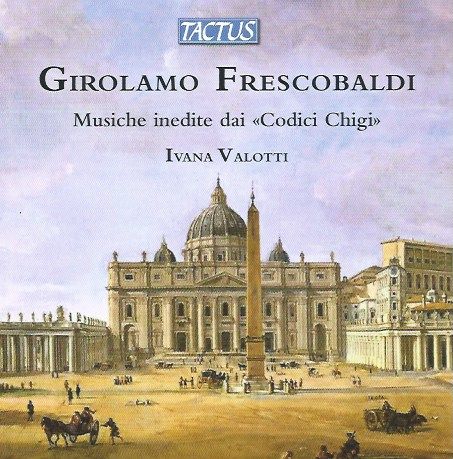Exploring the lesser-known works of Frescobaldi
The more one listens, the more this music gives back

The Italian label Tactus has provided several gems in Classical Explorer's journey so far. It provides a real musicological service as well as presenting a succcession of gems in this newest release, as it is supplementing its complete published Frescobaldi keyboard works with this, the first volume of unpublished works. Constance Frei and Etienne Darbellay have worked tirelessly to establish that these unpublished works are actually by Frescobaldi.
Playing the Antegnati 1565 organ in the Palatine Basilica of Santa Barbara (Mantua; it was restored by Giorgio Carli, in 1995-2006; the organ even has its own website), Ivana Valotti presents music from the Chigi codices, a collection of scores owned by the Chigi family; the scores were donated to the Vatican Library in 1924. Never heard of the Chigi family? Fabio Chigi was also known as Pope Alexander VI.
A collection of Toccatas, Recercare and Canzone, this is a wonderful demonstration of the so-called "Stylus phantasticus," a style initially associated with Claudio Merulo (1533-1604) in Venice (he was organist at St Mark's Basilica); Frescobaldi formed the link between Italy and the style's use later use in Germany via his pupil, Johann Jakob Froberger (1616-67); thence it was used by the likes of Schütz and someone whose works revel in it: Heinrich Ignaz Biber (1644-1704).
It's important to note that while in some hands Frescobaldi's music can seem to meander, it never once does so in Valotti's hands. Let's try this appealing little number (and talking of numbers with this plethora of pieces all with the same title it can be difficult to identify which is which: this is a Canzona from Codici Chigi Q. IV. 24, p. 129):
The balance of freedom and style is impeccably maintained throughout by Valotti. The stricter Recercare balance the Canzone and Toccate nicely. here's a Recercare, Codici Chigi Q. IV. 24, p. 122:
See this music's restraint as inviting you into the music itself, because the more one listens, the more the music gives back. And you couldn't be in better hands. This, along with a fine recording and extensive booklet notes - and education in themselves - by Valotti herself, makes this disc a clear winner.
The links below include one to the complete set of published works on Tactus, spread between three performers: Roberto Loreggian, Francesco Tasini and Sergio Vartolo.
